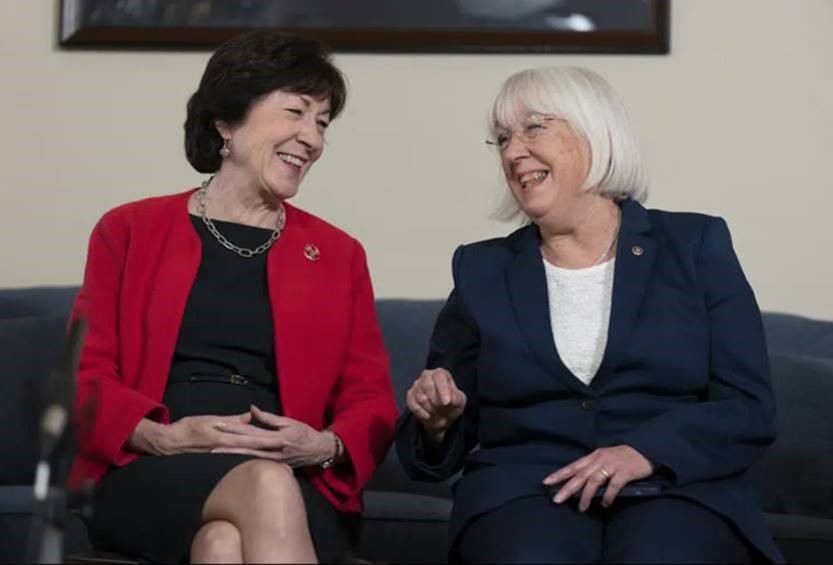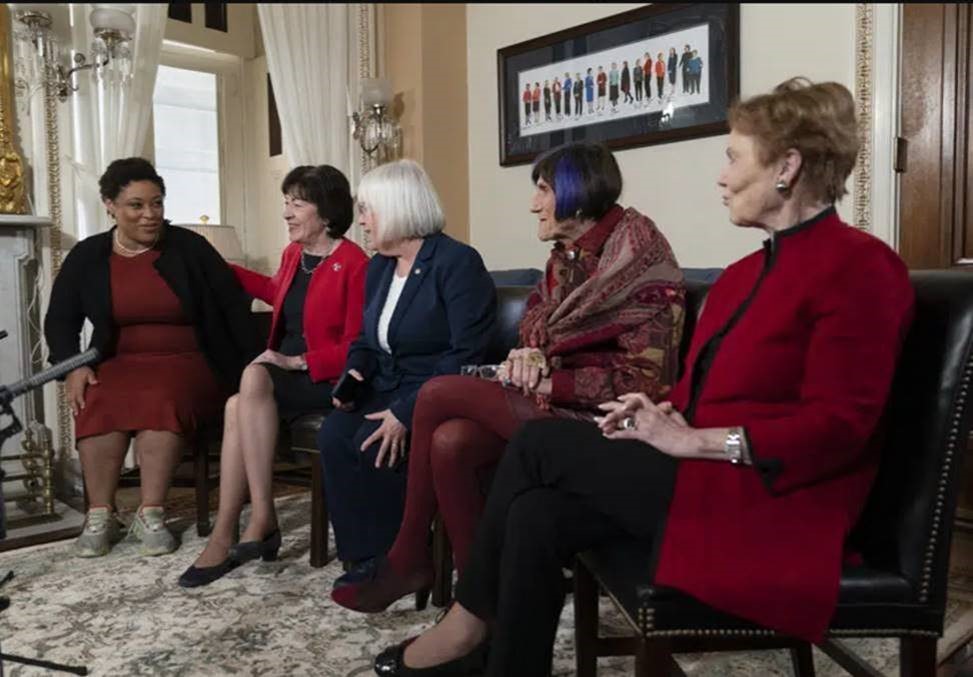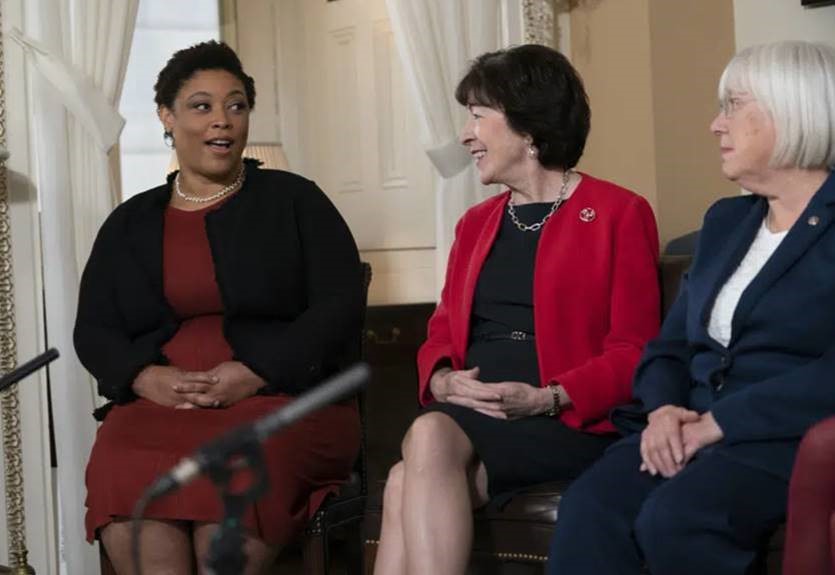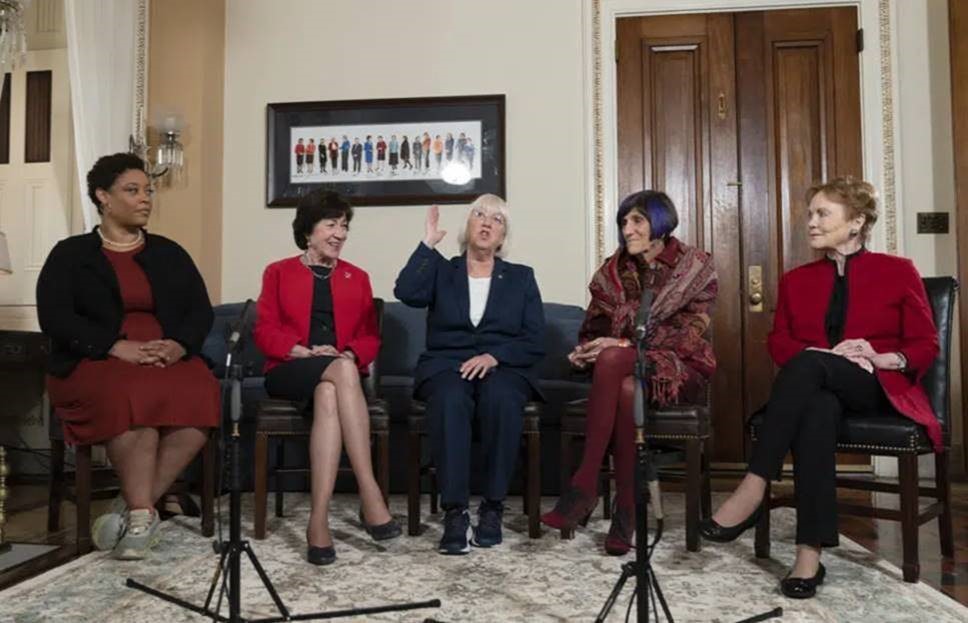5 women, immense power: Can they keep US from fiscal brink?
Associated Press | By: Mary Clare Jalonick and Seung Min Kim





Washington, D.C.—They are now among the most powerful women in Congress. But when they were first elected in the 1990s, they were often overlooked, or even talked down to.
Rep. Kay Granger, R-Texas, remembers that men would avoid asking her questions, addressing other men in the room instead. Rep. Rosa DeLauro, D-Conn., says a male colleague once challenged her at a hearing to describe a military tank engine produced in her district without looking at her notes. (She shot back: “Damn straight I can!”)
Sen. Susan Collins, R-Maine, says that one of the first times she chaired a committee hearing, she looked around the room and realized she was the only female senator there. Sen. Patty Murray, D-Wash., recalls being seated on the far edge of the committee dais, with the more senior men making the decisions in the middle.
“I remember finally just standing up at the end of the table going, ‘Excuse me!’ Because you couldn’t get their attention,” Murray says. “Everything was decided in the middle of this table. I think it’s pretty amazing that we’re at the middle of the table now.”
This year, for the first time in history, the four leaders of the two congressional spending committees are women. Granger is chairwoman of the House Appropriations Committee, while DeLauro is the top Democrat; Murray is Senate Appropriations chairwoman and Collins is the top Republican.
Sitting down with The Associated Press on Thursday for their first joint interview — and joined by Shalanda Young, the first Black woman to lead the Office of Management and Budget and a former House aide — the women talked like old friends, nodding and laughing in agreement when listening to each others’ stories about the way things used to be for women, and sometimes still are.
When they were elected, Collins says, men were automatically accepted once they came to Congress but women still had to prove themselves. “That extra barrier that was definitely in place still exists to some extent, but far less than it used to,” Collins said. “Women bring different life experiences and different perspectives. And that’s why it matters.”
The women said their camaraderie, friendship and willingness to collaborate will be crucial as they shoulder the massive responsibility of keeping the government running and open — an annual task that will be made even harder this year as conservatives in the new GOP House majority are insisting on major spending cuts and the U.S. is at risk of default. House Speaker Kevin McCarthy, R-Calif., won his post only after agreeing to several demands of those far-right members, creating a dynamic that could prove perilous for negotiations as Congress must raise the debt ceiling in the coming months.
…
Murray and Collins, in particular, have a long history together. In 2013, they were both key to efforts to end a government shutdown. And as they replaced Leahy and retiring Republican Sen. Richard Shelby as committee leaders this year, they immediately issued a joint statement calling for a return to the regular process of passing individual spending bills “in a responsible and bipartisan manner,” instead of shoving them all into one massive bill at the end of the year.
Collins said no one on either side of the aisle, in either chamber wants to fund the government again with a huge, end-of-the-year bill. “I truly believe we can make real progress by working closely together,” she said.
All of them give credit to their female predecessors on the committees, including former Sen. Barbara Mikulski, a Maryland Democrat who was the first chairwoman of the Senate appropriations panel and used to invite new senators to her office for what she called a “workshop” on the appropriations process so they could become more familiar with the elaborate workings of the committee.
In an interview, Mikulski, who retired in 2017 after 30 years in the Senate, says the women are “brilliant strategists” who may disagree on policy but won’t let rancor come between them.
“What I’m excited about is that they have not only broken the glass ceiling, but they have the keys to the vault,” Mikulski says.
###